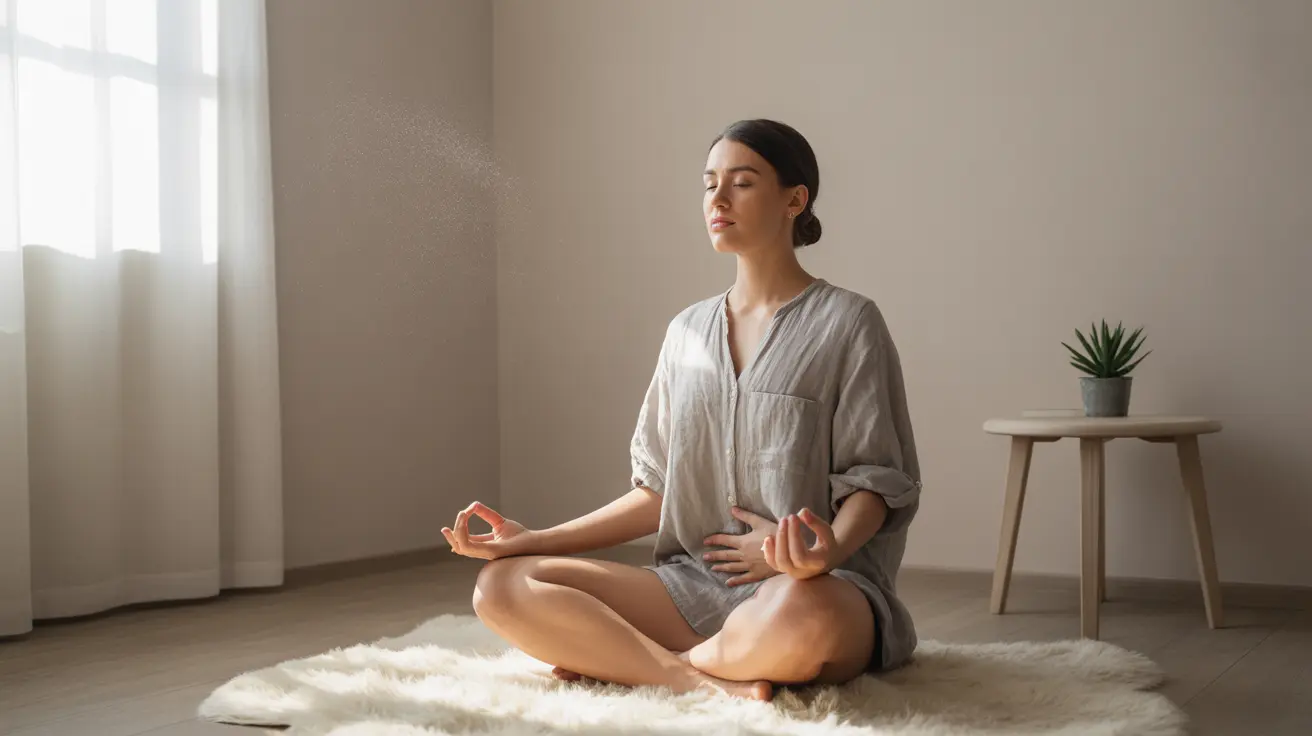Experiencing anxiety without an obvious trigger can be both frustrating and overwhelming. While it's common to feel anxious in response to specific stressors, sometimes anxiety seems to appear out of nowhere, leaving you searching for ways to regain your sense of calm and control.
Understanding and managing unexplained anxiety is possible with the right combination of techniques and lifestyle adjustments. This comprehensive guide explores evidence-based strategies to help you cope with and reduce anxiety when there's no clear cause.
Understanding Unexplained Anxiety
Anxiety without an apparent cause often stems from underlying factors such as stress accumulation, sleep problems, or hormonal changes. Your body's stress response system can sometimes activate even when there's no immediate threat, leading to uncomfortable physical and emotional symptoms.
Immediate Anxiety Relief Techniques
Effective Breathing Exercises
Controlled breathing exercises can quickly activate your body's relaxation response. Try the 4-7-8 technique: inhale for 4 counts, hold for 7 counts, and exhale for 8 counts. Practice this cycle 3-4 times when anxiety strikes.
Grounding Methods
Grounding techniques help anchor you to the present moment when anxiety feels overwhelming. Use the 5-4-3-2-1 method: identify 5 things you can see, 4 things you can touch, 3 things you can hear, 2 things you can smell, and 1 thing you can taste.
Lifestyle Changes for Long-term Anxiety Management
Regular Physical Activity
Exercise naturally reduces anxiety by releasing endorphins and decreasing muscle tension. Aim for at least 30 minutes of moderate activity most days of the week, whether it's walking, swimming, or yoga.
Sleep Hygiene
Poor sleep can trigger or worsen anxiety. Establish a consistent sleep schedule, create a relaxing bedtime routine, and avoid screens at least an hour before bed to improve sleep quality.
Dietary Considerations
Certain foods and beverages can impact anxiety levels. Limit caffeine and alcohol intake, and focus on consuming whole foods rich in B vitamins, omega-3 fatty acids, and magnesium.
Natural Remedies and Alternative Approaches
Several natural approaches can complement traditional anxiety management strategies:
- Essential oils (lavender, chamomile, bergamot)
- Herbal teas (chamomile, passionflower, lemon balm)
- Mindfulness meditation
- Progressive muscle relaxation
- Regular massage or acupuncture
When to Seek Professional Help
While self-help strategies are valuable, professional support may be necessary if:
- Anxiety persists for more than two weeks
- Daily activities become difficult to manage
- Sleep is consistently disrupted
- Physical symptoms worsen
- You experience panic attacks
Frequently Asked Questions
What are effective breathing techniques to stop feeling anxious for no reason?
Deep breathing exercises like box breathing (inhale, hold, exhale, hold for equal counts) and diaphragmatic breathing can effectively calm anxiety. These techniques help regulate your nervous system and reduce stress hormones.
How can lifestyle changes help reduce anxiety without an obvious cause?
Regular exercise, consistent sleep patterns, balanced nutrition, and stress management techniques can significantly reduce unexplained anxiety. These changes help stabilize mood and create resilience against anxiety symptoms.
What grounding exercises can I try to calm sudden feelings of anxiety?
Besides the 5-4-3-2-1 method, try physical grounding techniques like feeling your feet firmly on the ground, holding an ice cube, or focusing on a specific object in detail. These exercises help redirect attention from anxious thoughts.
Are there natural remedies like aromatherapy or exercise that help with unexplained anxiety?
Yes, aromatherapy using essential oils, regular physical activity, herbal supplements (under healthcare provider guidance), and mindfulness practices can effectively complement anxiety management strategies.
When should I seek professional help for persistent anxiety with no clear trigger?
Seek professional help if anxiety interferes with daily functioning, causes persistent physical symptoms, leads to panic attacks, or doesn't improve with self-help strategies after two weeks. A mental health professional can provide proper diagnosis and treatment options.




